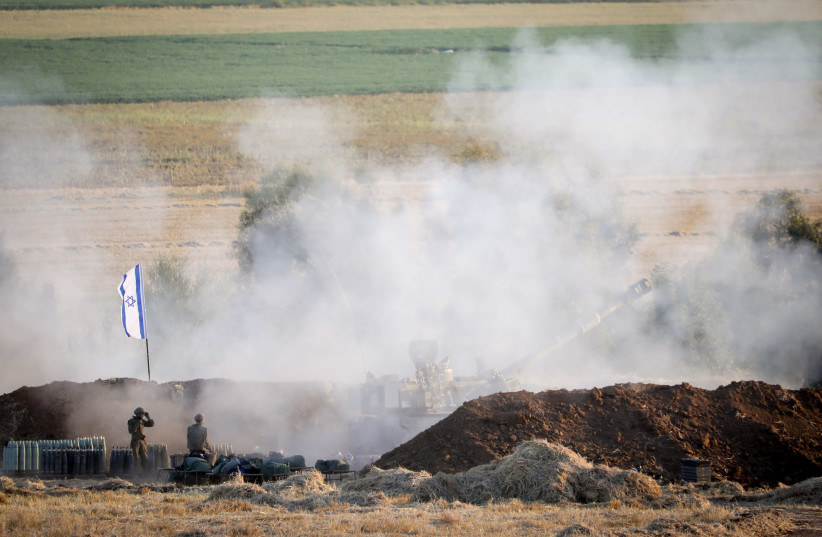During last May’s military operation “Guardian of the Walls,” only 40 of the 500 Arab-Israeli truck drivers summoned to aid the IDF’s efforts participated, with 460 drivers ignoring the call to action, according to Knesset discussions about last May’s military clashes in Gaza.
The information was released during discussions in Israel’s Knesset on Monday that were led by MK Ram Ben Barak. “I insisted on this discussion to allow the IDF to function properly and win the next confrontation. The story of the leaders in 'Guardian of the Walls’ should keep us sleepless because without a logistical backbone, the best soldiers will not be able to win,” Ben Barak stated.
“We heard in the media that the IDF says that it does not check nationality – only a vehicle license – but in the same breath an IDF general is interviewed and says that he will not travel through [Israeli-Jordanian border checkpoint] Wadi Araba. When it comes to Israel's security, political correctness should be set aside and common sense should speak," Ben Barak continued.
MKs Orit Struck, Moshe Arbel, Keren Barak and Meir Porush were the other Knesset members involved in discussions, which also covered over 20 instances of conscripted soldiers who abandoned their posts or refused orders during last May’s military operations - seven of whom were released from the IDF afterward.
“It is impossible to put all our eggs on some adventure or agenda and vision that we would very much like to see happen tomorrow morning, even though I am in favor of combinations of Israeli Arabs in the IDF,” MK Ofir Sofer said about the initiative.

“The IDF should not solve the problem in Wadi Araba, only get north or south as quickly as possible during a war,” Sofer stated.
The IDF has the authority to mobilize national resources in collaboration with the Transportation Ministry and has previously used the cooperation for matters of national security, such as deploying 300 soldiers to protect public transport in 2015 in the midst of terrorist attacks.
Brig.-Gen. Pini Ben Moyal, head of the IDF Logistics Division, was also present at the Knesset discussions. He described how the IDF utilizes the Transportation Ministry in times of crisis, outlining that outside of the regular and reserve personnel that is called upon to help, civilian contractors may be recruited and have agreements to potentially assist IDF missions.
“Ninty-eight percent of the reserve corps called up for recruitment have reported for reserve service, and reserve drivers increase their regular capacity for heavy transport by 300%. In transport vehicles that the IDF does not own, we work through the same contracts, but every case the Defense Ministry signs is filtered for security clearance. There are suppliers in all areas who need to respond in an emergency, there is contractual and legal enforcement, and every year we review the engagements with them to make sure they can meet the requirements,” Moyal explained.
Itzik Levy, head of the Transportation System at the Defense Ministry, explained the shocking statistic by saying that “a particular supplier may not have vehicles available because they are on other missions, but to that end, we have contracts with about 80 suppliers."
2021’s Operation Guardian of the Walls was the most recent clash with Gazan terrorists from the groups Hamas and Palestinian Islamic Jihad. It was the largest military operation in Israel since 2014 and was marked by riots and unrest by the Arab-Israeli population.
“Thank God there is indeed a group of Israeli Arabs who want and want to be an integral part of the country, and I strengthen their hands. Unfortunately, they are marginalized and even trampled on by the Islamic movement, which is a member of this government, and by extremist Arab elements against the state,” said Orit Struck of the Religious Zionist Party.
Ben Barak, the committee’s chairman who defended the IDF initiative, claimed that there was “no correlation” between the absence of drivers and the military operation.
“The debate also spilled over into the question of whether or not to recruit Arabs, and I believe it is unfortunate for a democratic state to let extremists lead its policy-making,” Ben Barak concluded. “We want to integrate all populations, in all textures of life in Israel, of course, while maintaining security.”
